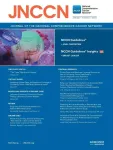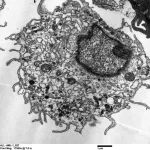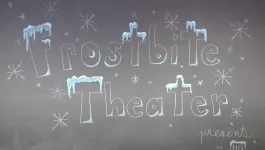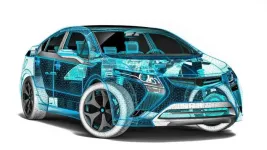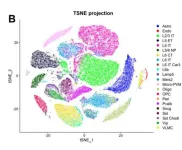(Press-News.org) Studies show that consumers believe people who work hard for their money have higher incomes, are more financially literate and are more comfortable taking on prudent financial risk.
Similarly, national survey data used by policymakers to assess the relationship between effortful earning and financial risk-taking also shows a positive correlation between the two.
While, at the population level this may be true, new research from the University of Notre Dame shows that the harder an individual consumer works, the less willing they are to risk those earnings through investments and elsewhere. In other words, when comparing two people, the person who works harder will likely be more tolerant of risk. When looking at a single person, they are less tolerant of risk when they work hard and more tolerant of risk when they don’t work hard.
“Working Hard for Money Decreases Risk Tolerance” is forthcoming in the Journal of Consumer Psychology from lead author Christopher Bechler, assistant professor of marketing in Notre Dame’s Mendoza College of Business, along with Samina Lutfeali, Szu-chi Huang and Joshua Morris from Stanford University.
“Consumers feel greater psychological ownership over their earnings when they work hard for them, which makes them value these earnings more and be more averse to losing them,” Bechler said. “So, they choose less risky investments and invest less.”
The team conducted four experiments and one supplemental study that employed a unique, incentive-aligned paradigm to capture the causal effect of effortful earning on risk taking.
Participants exerted effort to acquire money over three to six periods (months) within a microcosmic financial cycle. Tasks they completed to earn money included pressing the “s” key on their keyboard tens or hundreds of times and transcribing Dutch poems. After each period, participants received an opportunity to risk their earnings — most frequently an investment opportunity.
“We show that when controlling for the individual, more effortful earning actually leads consumers to take on less risk, despite their riskier options having greater expected returns,” Bechler said.
The negative effort-risk relationship revealed in this study could become increasingly influential. Bechler points out that people have always worked hard to earn money, but even more so in the midst of the COVID-19 pandemic, persistent high inflation, low wage growth and other factors.
“The temporal gap between effortful earning and spending/investing decisions has always been short in some industries,” Bechler said. “Individuals working for tips often receive daily compensation and technological advancements are further reducing this gap, helping more workers get paid immediately after work — for example, Walmart employees can be paid daily — and allowing earnings to be immediately spent or invested. The shorter the gap between earning and investing, the more influential our effect will be.”
The study provides support for interventions that automate the accumulation of assets by moving income directly into an investment plan.
“This could keep consumers’ hard work from undermining their investment decisions,” Bechler said.
Contact: Christopher Bechler, 574-631-1202, cbechler@nd.edu
END
Working hard for money decreases consumers’ willingness to risk their earnings, study shows
2023-06-12
ELSE PRESS RELEASES FROM THIS DATE:
Four-legged robot traverses tricky terrains thanks to improved 3D vision
2023-06-12
Researchers led by the University of California San Diego have developed a new model that trains four-legged robots to see more clearly in 3D. The advance enabled a robot to autonomously cross challenging terrain with ease—including stairs, rocky ground and gap-filled paths—while clearing obstacles in its way.
The researchers will present their work at the 2023 Conference on Computer Vision and Pattern Recognition (CVPR), which will take place from June 18 to 22 in Vancouver, Canada.
“By providing the robot with a better understanding of its surroundings in 3D, it can be deployed in more complex environments ...
Researcher explores vulnerabilities of AI systems to online misinformation
2023-06-12
A University of Texas at Arlington researcher is working to increase the security of natural language generation (NLG) systems, such as those used by ChatGPT, to guard against misuse and abuse that could allow the spread of misinformation online.
Shirin Nilizadeh, assistant professor in the Department of Computer Science and Engineering, has earned a five-year, $567,609 Faculty Early Career Development Program (CAREER) grant from the National Science Foundation (NSF) for her research. Understanding the vulnerabilities of artificial intelligence (AI) to online misinformation is “an important and timely problem to address,” ...
Food-drug interactions could be impactful for some lung cancer patients according to new study in JNCCN
2023-06-12
PLYMOUTH MEETING, PA [June 12, 2023] — New research in the June 2023 issue of JNCCN—Journal of the National Comprehensive Cancer Network found that when alectinib—a safe and effective small molecule kinase inhibitor used to treat some types of advanced lung cancer—was taken with a fuller breakfast, or with lunch, it resulted in significantly higher drug concentrations than when taken with a low-fat breakfast. The researchers, based out of Rotterdam, The Netherlands, evaluated 20 randomized patients who took one of two daily alectinib doses with either low-fat yogurt ...
U.S. consumers judge morality of armed self-protection on case-by-case basis, OSU research shows
2023-06-12
CORVALLIS, Ore. – American consumers use their understanding of gun rights when judging the morality of civilians’ use of guns to protect themselves from crime, and that assessment varies depending on specific scenarios, new research from Oregon State University shows.
The study’s objective was to explore Americans’ understanding of the Second Amendment, the only constitutional right that explicitly entitles individuals to a consumer product, and how that understanding guides which gun-related behaviors are deemed morally acceptable. The authors also examined how recent court rulings and legal and market ...
Magic cocktail generates lung’s most critical immune cell in the lab
2023-06-12
SAN ANTONIO (June 12, 2023) — Researchers at Texas Biomedical Research Institute have succeeded in generating the lung’s most important immune cell, the alveolar macrophage, in the lab. The cell culture model will make it much easier and inexpensive for researchers around the world to investigate lung inflammatory diseases and test new potential therapies.
Macrophages are the “Pac-Man” of the immune system, eating up garbage throughout tissues in the body. Alveolar macrophages specifically live in the lining of lung’s air sacs where air exchange occurs, and are usually the first immune cells to encounter pathogens entering the deep lungs, such as SARS-CoV-2 ...
Evolutionary fuel: Researchers study maintenance of an ancient chromosomal inversion
2023-06-12
LOGAN, UTAH, USA -- Genetic variation is the ultimate fuel for evolution, says Utah State University evolutionary geneticist Zachariah Gompert. But, over centuries, that fuel reservoir gets depleted in the course of natural selection and random genetic drift.
Whether, or how, genetic variation can persist over the long haul remains a big question for scientists. Gompert and colleagues from the University of Montpellier in France, the United Kingdom’s John Innes Centre, the National Autonomous University of México, Querétaro; ...
Jefferson Lab Virtual Series serves up science brain teasers
2023-06-12
NEWPORT NEWS, VA – Here’s a question for you… Is it possible to learn key science concepts in three minutes or less? The answer: We sure hope so. The U.S. Department of Energy’s Thomas Jefferson National Accelerator Facility is now offering a new playlist called “Here’s a Question” as part of its long-running Frostbite Theater video series. In the “Here’s a Question” videos, longtime Frostbite Theater hosts Steve Gagnon and Joanna Griffin help viewers understand the scientific concepts underlying iron oxidation, magnetism and thermodynamics - and many more!
The series is the newest featured playlist ...
Experiment in Brazil identifies flood-prone areas of cities
2023-06-12
Scientists affiliated with the National Space Research Institute (INPE) in Brazil have combined models that predict urban expansion and land-use changes with hydrodynamic models to create a methodology capable of supplying geographical information that identifies flood-prone areas of cities, especially those vulnerable to the impact of extremely heavy rainfall.
The groundbreaking study was based on data for São Caetano do Sul, a city in metropolitan São Paulo, but the methodology can be used by other cities to devise public policies and make ...
Updating cars as fast as a smart phone
2023-06-12
Cyber-physical systems, such as vehicles, trains, airplanes, smart homes, or production facilities, combine electronic and mechanical elements with software. Development of these systems is highly complex due to the large number of dependencies among the components. “When a car’s wire harness is modified, the diameter of the cable duct also has to be changed,” says Professor Ralf Reussner, Spokesman of the CRC at KIT. This must be agreed upon by electrical engineers, software engineers and mechanical engineers. ...
Excessive alcohol consumption may accelerate Alzheimer’s disease progression
2023-06-12
LA JOLLA, CA—Alcohol use disorder (AUD) quickens the pace of Alzheimer’s disease progression when paired with genetic susceptibility. Scripps Research and University of Bologna scientists reported in the journal eNeuro on June 12, 2023, that repeated alcohol intoxication is associated with changes to gene expression indicative of disease progression in the brains of mice that are genetically predisposed to Alzheimer’s. When repeatedly exposed to intoxicating amounts of alcohol, ...

